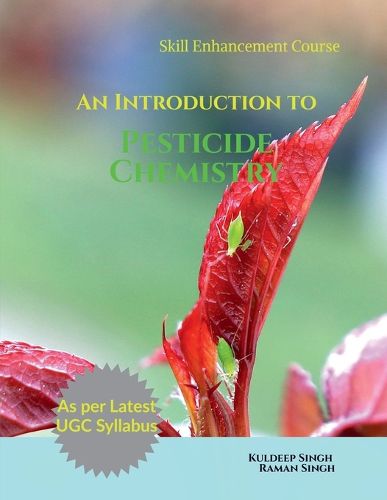Readings Newsletter
Become a Readings Member to make your shopping experience even easier.
Sign in or sign up for free!
You’re not far away from qualifying for FREE standard shipping within Australia
You’ve qualified for FREE standard shipping within Australia
The cart is loading…






The present book An Introduction to Pesticide Chemistry is a brief and introductory course on pesticides for students BSc Medical, BSc Non Medical, BSc Agriculture, BSc (Honours) - Chemistry. The book introduces various classes of pesticides, their synthesis, applications, analysis, formulation, and possible hazards of their uses.
This book focuses to explain or describe and critically examine different types of pesticides, their activity/toxicity and their applications and the need for the search of an alternative based on natural products. Chapters of analysis, formulation, Toxicological and environmental impact of pesticides have been added to enhance the knowledge and fulfill requirement of outcome-based education. Solved numerical, questions with model answers, MCQs, fill in the blank, and conceptual questions are added to enhance the learning process. This will help students to understand technical terms.
$9.00 standard shipping within Australia
FREE standard shipping within Australia for orders over $100.00
Express & International shipping calculated at checkout
The present book An Introduction to Pesticide Chemistry is a brief and introductory course on pesticides for students BSc Medical, BSc Non Medical, BSc Agriculture, BSc (Honours) - Chemistry. The book introduces various classes of pesticides, their synthesis, applications, analysis, formulation, and possible hazards of their uses.
This book focuses to explain or describe and critically examine different types of pesticides, their activity/toxicity and their applications and the need for the search of an alternative based on natural products. Chapters of analysis, formulation, Toxicological and environmental impact of pesticides have been added to enhance the knowledge and fulfill requirement of outcome-based education. Solved numerical, questions with model answers, MCQs, fill in the blank, and conceptual questions are added to enhance the learning process. This will help students to understand technical terms.